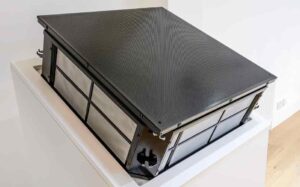US company must spend $23m to stop R22 leaks
20th February 2019
USA: Trident Seafoods, the USA’s largest seafood company, must pay a $900,000 fine and spend $23m to reduce emissions of ozone depleting refrigerant R22 under an agreement with the EPA.
The Seattle-based company is alleged to have allowed its appliances to leak refrigerant at high rates for thousands of days, causing over 200,000lb (91,000kg) of the refrigerant to be released into the atmosphere.
Trident is said to have violated the US clean air act and US mandates under the Montreal Protocol on numerous occasions between 2009 and 2016. In addition to its failures to repair leaking appliances, Trident also failed to create adequate servicing and compliance records on at least 289 occasions. In addition, it sometimes used uncertified technicians to perform work on refrigerant equipment and used “inadequate” refrigerant recovery equipment.
Trident and its subsidiaries Royal Viking Inc and Golden Dawn LLC own and operate four factory processor vessels, one freighter vessel, nearly 30 catcher and tender vessels, and 10 land-based facilities in Alaska and the Pacific Northwest. In most of these vessels and facilities, Trident uses ozone-depleting HCFCs in its refrigeration appliances in sizes ranging from less than 50lb (23kg) of refrigerant to greater than 5,000lb (2,268kg) of refrigerant.
The company has agreed to spend up to $23m to reduce coolant leaks from refrigerators and other equipment, use alternative refrigerants, and improve company-wide compliance. The company will also pay a $900,000 civil penalty.
Speaking yesterday, EPA Pacific northwest regional administrator Chris Hladick said: “As a result of today’s settlement, Trident Seafoods will implement common-sense methods to reduce releases of ozone depleting refrigerants into the atmosphere.”
Trident will retrofit or retire 23 refrigeration appliances used on 14 marine vessels to use a non-ozone-depleting alternative.
Trident will also agreed to conduct routine leak inspections of all appliances, promptly repair leaks, install leak detectors to monitor appliances for leaks, add fluorescent dye into appliances to assist staff in detecting leaks, compile information to assist in identifying common failure points on appliances, and train employees to properly manage the appliances. In addition, the settlement sets a corporate-wide refrigerant leak cap and requires Trident to retain a 3rd-party auditor to review the company’s compliance with the consent decree and regulations.
The proposed settlement was lodged in the US District Court for Alaska and is subject to a 30-day public comment period and court approval. View the settlement at https://www.justice.gov/enrd/consent-decrees.







